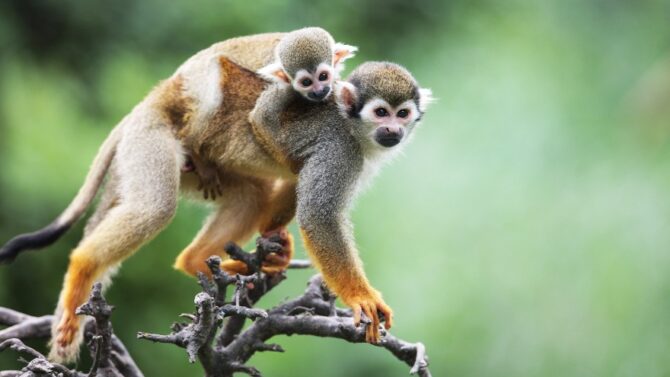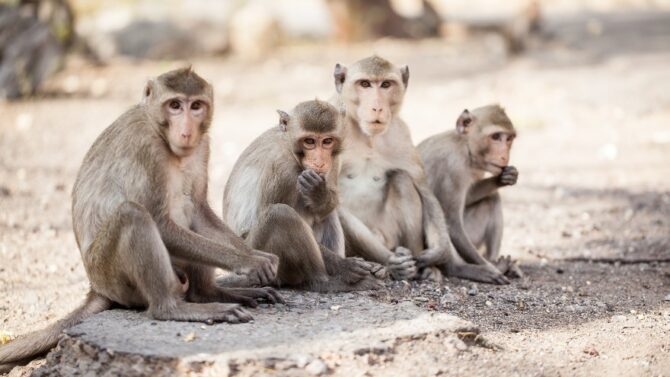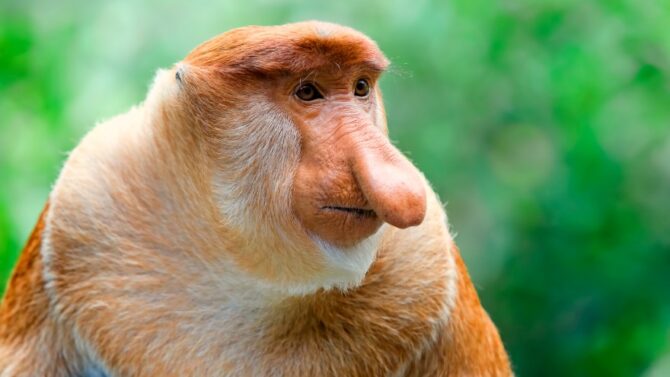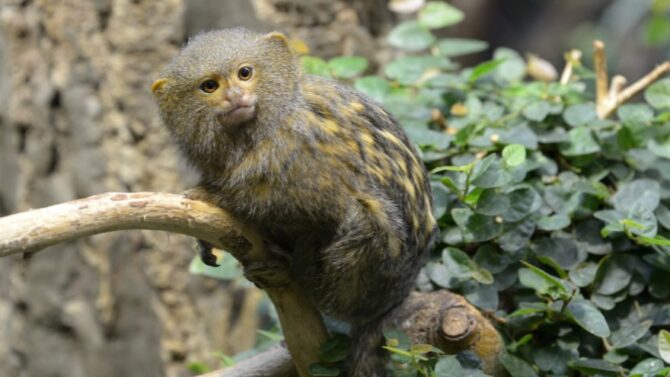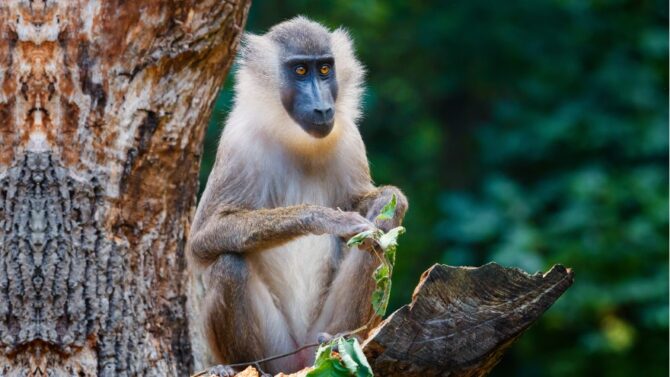Finger monkeys, often referred to as pygmy marmosets, are tiny primates that hail from the rainforests of South America. Weighing merely 100 grams and measuring around 5-6 inches in height, they certainly look captivating and are quite popular in exotic pet circles. But do these miniature creatures actually make good pets?
Before making a decision, check out the world of finger monkeys and weigh the facts and risks associated.
An Overview
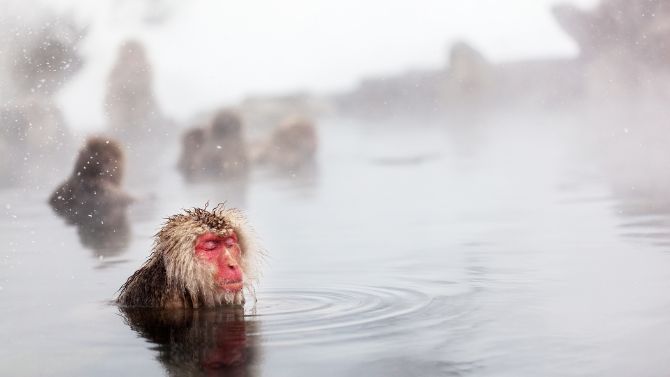
Introduced as one of the tiniest primates in the world, understanding these creatures is the first step.
Biological Background
Pygmy marmosets belong to the Callitrichidae family and are native to South America, particularly the Amazon Basin. Here’s a glance into their wild habitat and traits:
- Diet: They are gumivores, primarily feeding on tree sap, but they also eat insects, fruits, and flowers.
- Social Structure: Wild finger monkeys live in small groups and communicate using intricate vocalizations.
- Lifespan: On average, they live up to 12 years in the wild but can survive up to 16 years in captivity with proper care.
Finger Monkeys in Pop Culture
With their adorably petite size and compelling expressions, finger monkeys have increasingly captured human fascination:
- Social Media Stars: Many Instagram accounts and YouTube channels dedicated to pet finger monkeys have amassed huge followings.
- Movies & TV: Finger monkeys have occasionally been cast in roles that leverage their cute appeal, making them more popular and recognized.
- Exotic Pet Market: The appeal has driven demand in the exotic pet market, leading to varied opinions on their suitability as household companions.
Are Finger Monkeys Suitable as Pets?
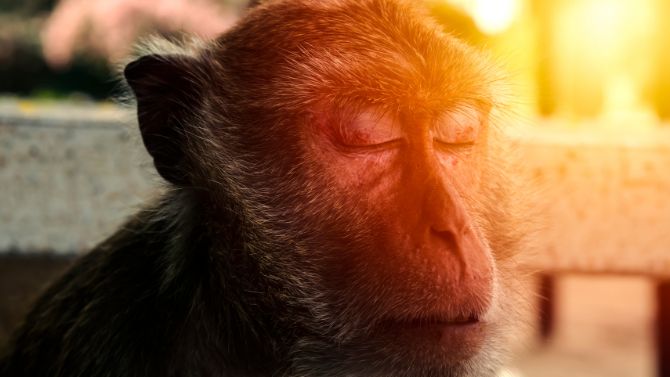
Every pet comes with its set of challenges and rewards. Dive deep into understanding if finger monkeys fit the bill.
Benefits of Owning a Finger Monkey
The allure of finger monkeys isn’t just in their appearance. Some advantages of owning one include:
- Unique Companionship: Their playful nature and curious personalities can lead to rewarding interactions.
- Educational Experience: Owning such an exotic pet can be an educational journey about primates, their habitats, and behaviors.
- Conservation Efforts: With the right breeding programs, private ownership can potentially contribute to the species’ conservation.
Challenges & Responsibilities
However, these creatures are not your average pets and come with significant responsibilities:
- Dietary Needs: They require a specific diet, and failure to provide it can lead to severe health issues.
- Social Needs: Being highly social in the wild, they require constant companionship, which can be demanding for owners.
- Legal Restrictions: Many regions have laws restricting or outright banning the ownership of exotic animals, including finger monkeys.
Risks Associated with Owning Them
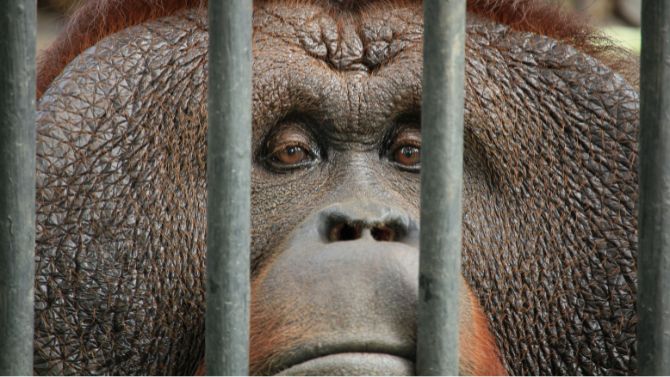
Understanding the potential risks is vital to make an informed decision.
Potential Health Risks
Owning a finger monkey is not without health concerns, both for the monkey and the owner:
- Zoonotic Diseases: These are diseases that can transfer from animals to humans. Monkeys can transmit diseases like herpes, salmonella, and monkeypox.
- Vulnerability: Due to their small size, they’re vulnerable to injuries, and common household items can be potential hazards.
- Long-Term Care: They can live up to 16 years, requiring a long-term commitment to their health and wellbeing.
Ethical and Conservation Concerns
There are also significant ethical concerns surrounding owning a finger monkey:
- Wildlife Trafficking: The demand for finger monkeys can fuel illegal wildlife trade, leading to potential endangerment in their natural habitats.
- Welfare Issues: Captivity can lead to stress, depression, and other health issues if their complex needs aren’t met.
- Conservation Backlash: While some argue that private ownership can aid conservation, others believe it does more harm than good by reducing their wild populations and potentially leading to inbreeding in captivity.
Alternative Options
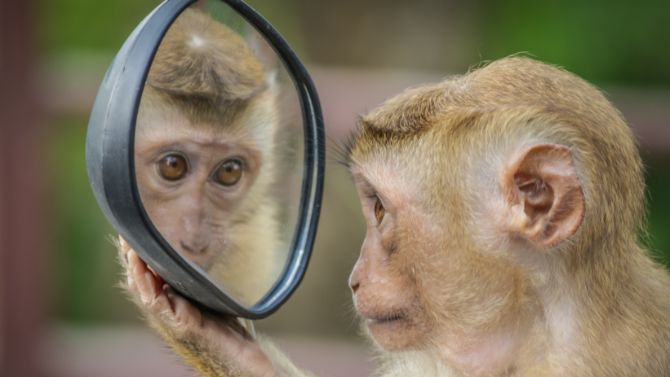
If you’re captivated by the allure of finger monkeys but unsure about the commitment, consider other ways to engage with these creatures.
Visiting Reserves and Zoos
There are many ethical ways to appreciate the beauty and charm of finger monkeys:
Conservation Reserves
These are establishments dedicated to preserving the natural habitats of various species, including finger monkeys. By visiting these reserves, you can observe them in environments close to their natural habitat.
Zoological Parks
Many reputable zoos house finger monkeys and take care of their complex needs. These zoos often have educational programs to teach visitors about these creatures.
Sanctuaries
There are sanctuaries dedicated to the rescue and care of exotic pets that have been abandoned or rescued. Visiting these places can offer a chance to see these animals while supporting their care and well-being.
Supporting Conservation Efforts
Instead of owning a finger monkey, consider contributing to their preservation:
Donations
Many organizations are dedicated to the conservation of rainforests and the animals within them. Donating to these organizations can help protect the natural habitats of finger monkeys.
Adopting a Monkey (Virtually)
Some conservation organizations offer virtual adoption programs. By ‘adopting’, you support the care and conservation of these creatures without physically owning one.
Volunteering
Many sanctuaries and conservation organizations welcome volunteers. This hands-on experience can be more rewarding than ownership and directly benefits the animals.
Recommendations
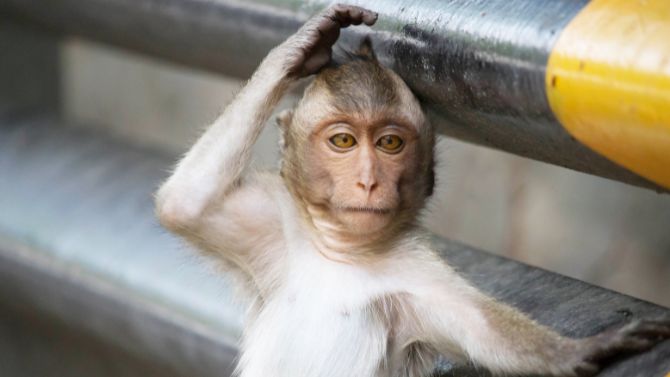
Bringing our exploration of finger monkeys to a close, here are some final thoughts.
Weighing the Decision
Owning a finger monkey is not a decision to be taken lightly:
- Thorough Research: Before committing, it’s essential to spend ample time researching and understanding the specific needs and challenges associated with these creatures.
- Consultation: Speak with current owners, veterinarians familiar with finger monkeys, and conservation experts. Their insights can offer invaluable guidance.
- Ethical Consideration: Beyond personal desire, consider the broader implications of owning such an exotic creature and the potential consequences for the species as a whole.
The Bigger Picture
While they’re undeniably captivating, finger monkeys remind us of a broader responsibility:
- Respecting Nature: Every creature plays a unique role in our planet’s ecosystem. Respecting their natural habitats and ways of life is crucial.
- Promoting Conservation: Instead of driving demand in the exotic pet trade, consider ways to support the conservation of these animals in the wild.
- Educating Others: Share your knowledge and insights about finger monkeys and the implications of owning them. A well-informed community can make better decisions for the welfare of all creatures.
FAQs
How much does it cost to purchase a finger monkey?
The cost can vary widely based on factors like location, legality, and the breeder’s reputation. Typically, they can range from $1,500 to $4,000 or even more.
However, the initial purchase price is just the beginning. One must also factor in the costs for proper care, feeding, veterinary services, and other necessary expenses.
Can finger monkeys be potty trained like cats or dogs?
They have different habits and instincts compared to domesticated pets like cats or dogs. While they can be trained to some extent, it’s challenging to potty train them completely.
Owners often use diapers designed for small primates or set up specific areas for their monkeys to relieve themselves.
Do finger monkeys need vaccinations like other pets?
Yes, they require vaccinations to protect them from various diseases, just as other pets do. Regular veterinary check-ups are crucial, and the vet will advise on the necessary vaccinations and their schedules.
Are there specific toys or enrichment activities recommended for finger monkeys?
Enrichment is crucial for finger monkeys to keep them mentally and physically stimulated. Suitable toys include ropes, swings, ladders, and even puzzle toys that can dispense treats.
Natural wooden toys can help with their chewing tendencies. Furthermore, interactive play sessions with their human caregivers are beneficial for their well-being.
How do finger monkeys react to other household pets?
Interaction between finger monkeys and other pets can be unpredictable. While there might be instances where they get along with animals like dogs or cats, there can also be situations of stress, aggression, or even injury.
It’s essential to supervise any interaction and be prepared to keep them separated if compatibility issues arise.
What should I do if I can no longer care for my finger monkey?
If you find yourself in a situation where you can no longer provide proper care for your finger monkey, it’s crucial to ensure they find a suitable new home.
It’s advised to contact sanctuaries, rescues, or organizations that specialize in exotic pets. They can provide guidance or assist in rehoming the monkey to a place where it will receive proper care and attention.
Final Words
The world of finger monkeys is enchanting and complex. As with any living being, the decision to introduce them into your life should be made with care, respect, and thorough understanding.
Whether you choose to own one or admire it from a distance, remember the responsibility we hold towards these and all creatures. Let’s ensure our fascination leads to their protection and well-being.

